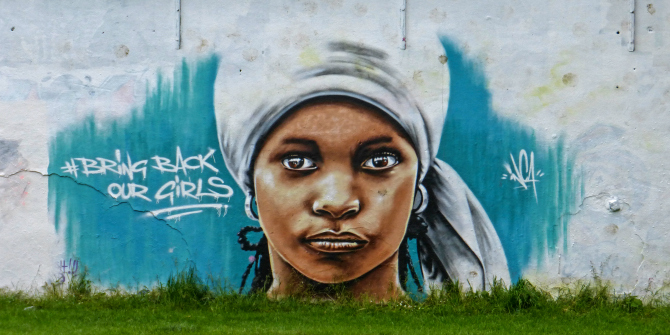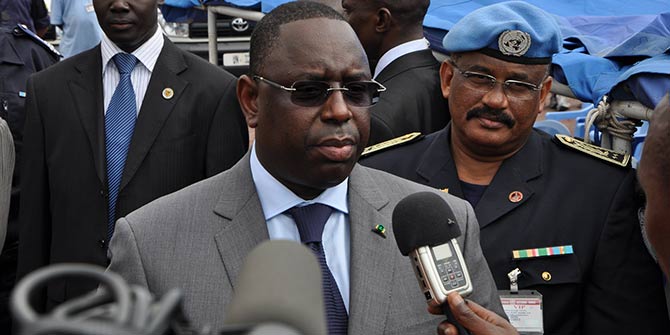Okechukwu Okorie explores the potential impact ICT could have on development in African countries.
Conversations in the past two decades within academia, the media and policymakers have mostly centred on relatively new concepts driven, largely, by globalisation. These include the fourth Industrial Revolution, popularly described as Industry 4.0 and, for Africa – policymakers, stakeholders and the media alike – the Africa Rising narrative, one which, I must add, has recently come under some justified criticisms.
Industry 4.0, or I4.0 seeks to improve the productivity and efficiency in industrial manufacturing by incorporating the latest advances in ICT. At the heart of Industry 4.0 is digitalisation and big data driven by smart networks and devices and the Internet of Things. The Internet of Things (IoT) drives “smart connection”, where big data is generated and transmitted across a framework that includes a smart device, the internet, the consumer and the company.
Most of the research on the Africa Rising narrative – a term coined to describe the rapid economic growth in sub-Saharan Africa since 2000 – focused on numbers from the World Bank and other economic indices as an indication of that growth – and for good reasons too. Until 2015, the impact of rising commodities prices and improved governance across the continent triggered a sustained period of optimism as never experienced before on the continent. The continent posted an average annual growth rate of 0.8 per cent over a 34-year period, 1960-1994. However, in 2014, there were celebrations as Africa was on course to mark 20 years of substantial GDP growth of 5.1 per cent. Within that period, growth rates in Africa saw a tenfold increase in FDI and a fast-growing middle class. There was also an impact in the education sector, with enrolment in public universities doubling in Kenya between 2007 and 2012. Infant mortality decreased while life expectancy increased in some countries on the continent, an expected consequence of economic growth.

Image Credit: Tanvir.Nottingham via Flickr
Criticism of this narrative, though, persisted despite impressive figures from the continent and the accompanying aesthetics of new shopping malls and solar-powered streetlights – symbols of improved quality of life; observers noted that much of the Africa Rising phenomena was driven by high commodity prices which was weak and unsustainable in the long-term. The new demand on Africa’s natural resources was largely driven by China and therefore dangerously susceptible to shocks. These fears were realised in 2015 and subsequent years; the red-hot economic growth cooled and pockets of political instability followed. In recent months and years, there have been changes in the governments of Zimbabwe, South Africa and Ethiopia, with countries such as Kenya still experiencing disruption post-election. Sustainable development may thrive in difficult circumstances but hardly in political uncertainty and instability.
Therefore, the question: Will ICT be Africa’s saving grace in development? becomes imperative against the backdrop of familiar foes and zero peaks in commodity prices. For much of Europe, leveraging components of Industry 4.0 has largely driven growth in a region with bespoke problems of low population growth and an ageing population, in comparison to Africa. A PWC study for instance, predicts that the digitalisation and interconnection of products and services will ensure competitiveness among European companies, increasing additional revenues of 2 per cent to 3 per cent per year on average, amounting to €110 billion annually. If the digital technology-enabled circular economy, as practised in much of Europe, North America and Asia is driving sustainable development, will the same model result in success if deployed in Africa –or will it fail to rejuvenate the Africa Rising phenomena?
Digital technology can enable Africa’s leaders and citizens to extract and analyse data to create cities that are circular by design and boost employment. ICT can be a saving grace for development in Africa and not the saving grace if development is meant to be sustainable and resilient. Gartner’s 2016 projection for mainstream adoption of IoT in Africa, was projected to take the next two to five years and is expected to have the most transformational impact on local businesses in the same period.
And this is currently visible; from Addis Ababa to Lagos to Nairobi to Kigali and to Johannesburg, Africa’s entrepreneurs and businesses are leveraging on IoT and ICT to drive most parts of their business. The sharing economy, as seen in the inroads Uber and Airbnb have made in Africa, creating employment and driving localised ideas and competition.
There seemingly is a “boost” in development enabled by ICT. However, like the boost driven by high commodity prices, this current enabling of development in Africa through ICT may be historicised as a myth if there are no country-wide and continent-wide frameworks to support it. Frameworks that should have, at its heart, infrastructural development. These frameworks should be designed around sectors (agricultural, air travel, banking etc) that are universally important across the continent. Of course, it is difficult to apply a sweeping solution to all 54 countries in Africa. However, all 54 countries have similar priorities in challenges and a teeming youth population. “Economic variables for turmoil,” as the New York Times once put it. Using these variables to leverage the potential of ICT and IoT can be and should be a sustainable and resilient saving grace in Africa’s development.
This article is part of the #AfricaAtWork series, looking ahead to the 2018 LSE Africa Summit 20 and 21 April. Follow this link to secure your ticket.
Okechukwu Okorie is a PhD researcher at Cranfield University, United Kingdom. His research area is centred on Manufacturing Informatics and the Circular Economy, with a focus on remanufacturing.
The views expressed in this post are those of the author and in no way reflect those of the Africa at LSE blog, the Firoz Lalji Centre for Africa or the London School of Economics and Political Science.





